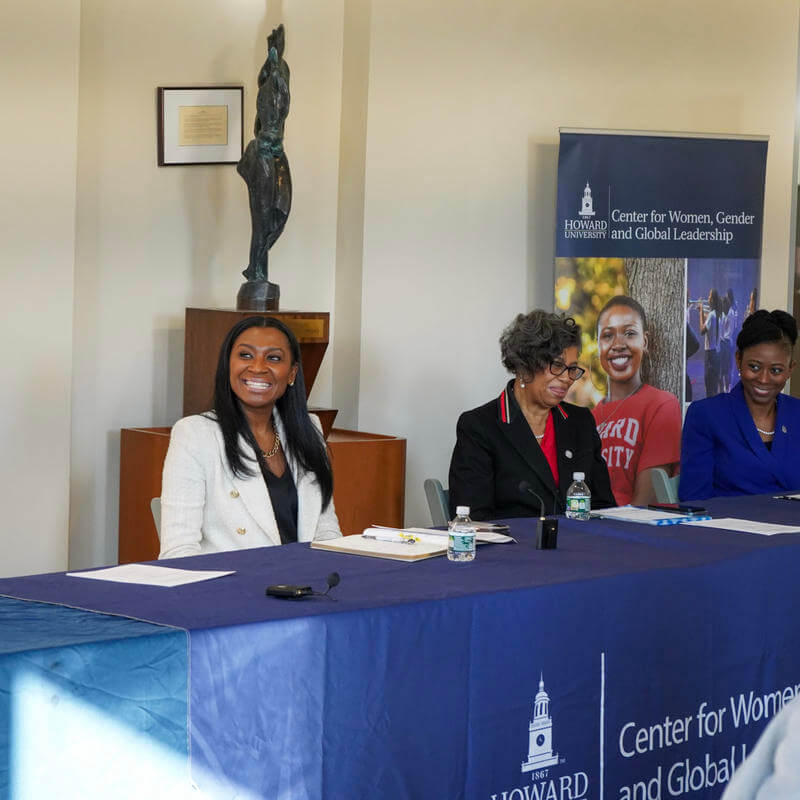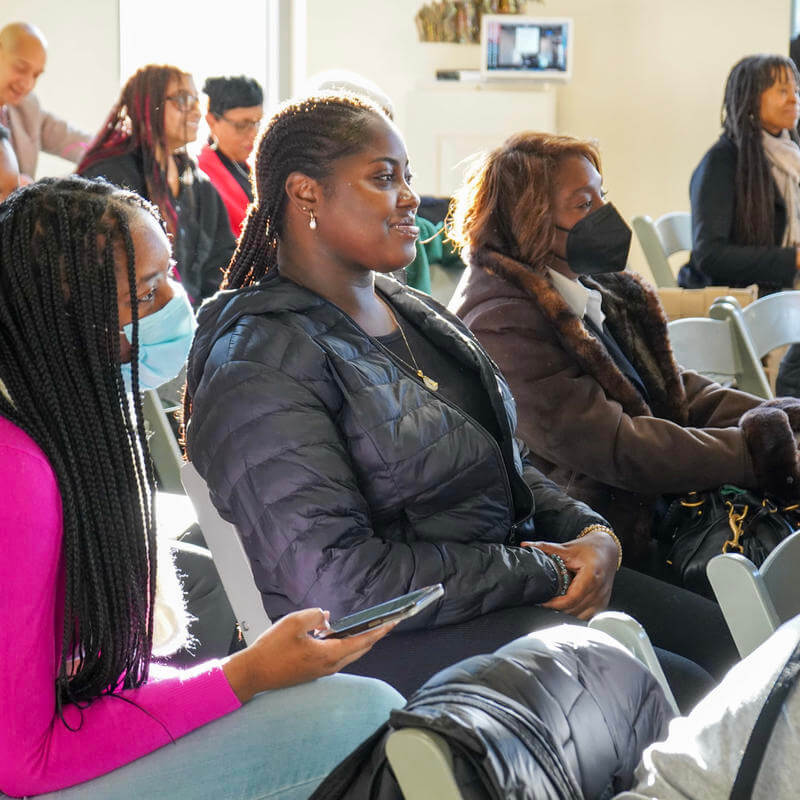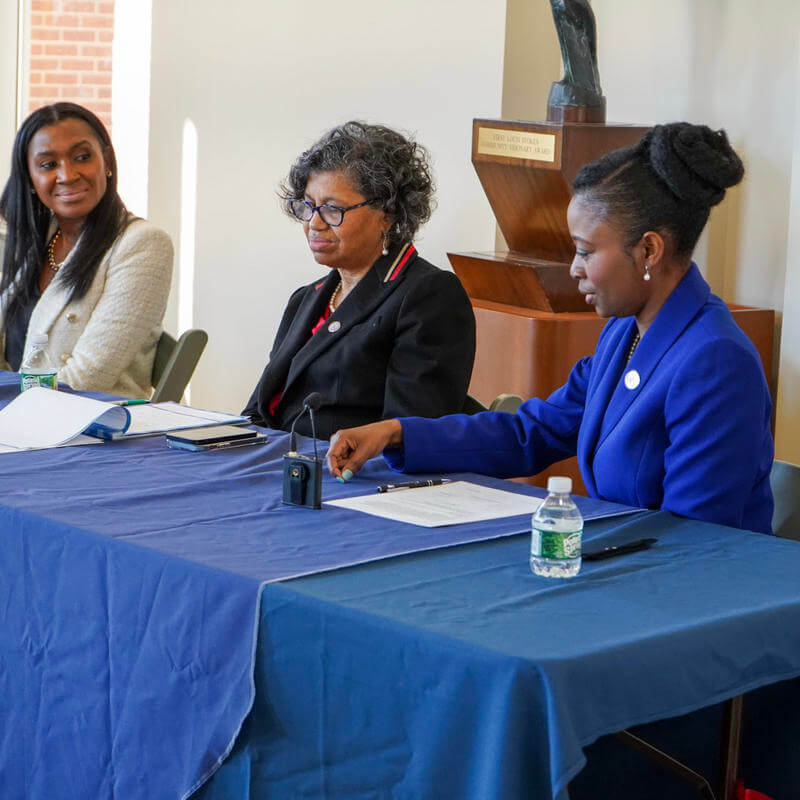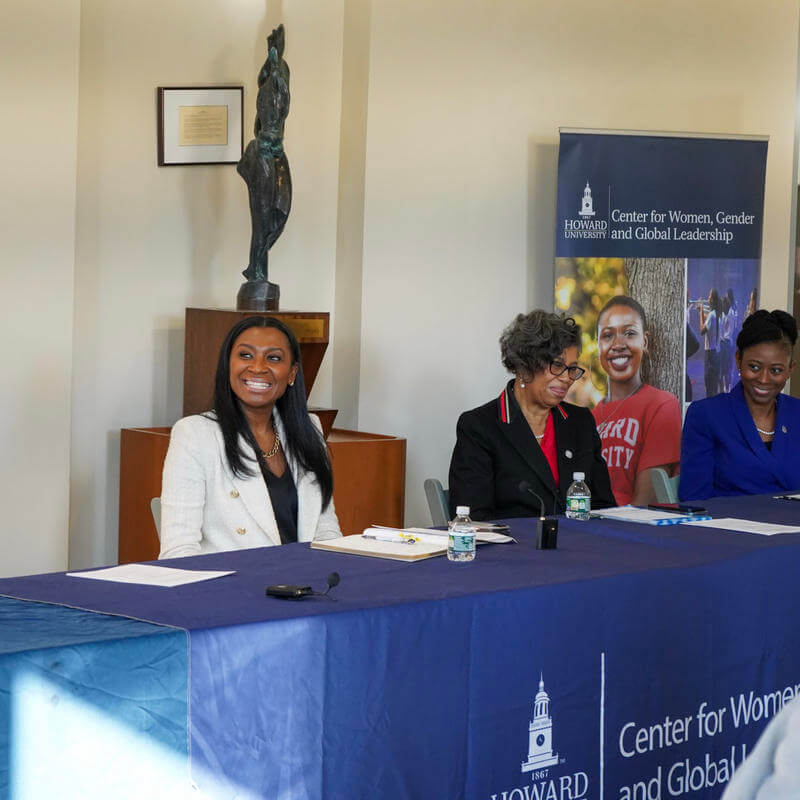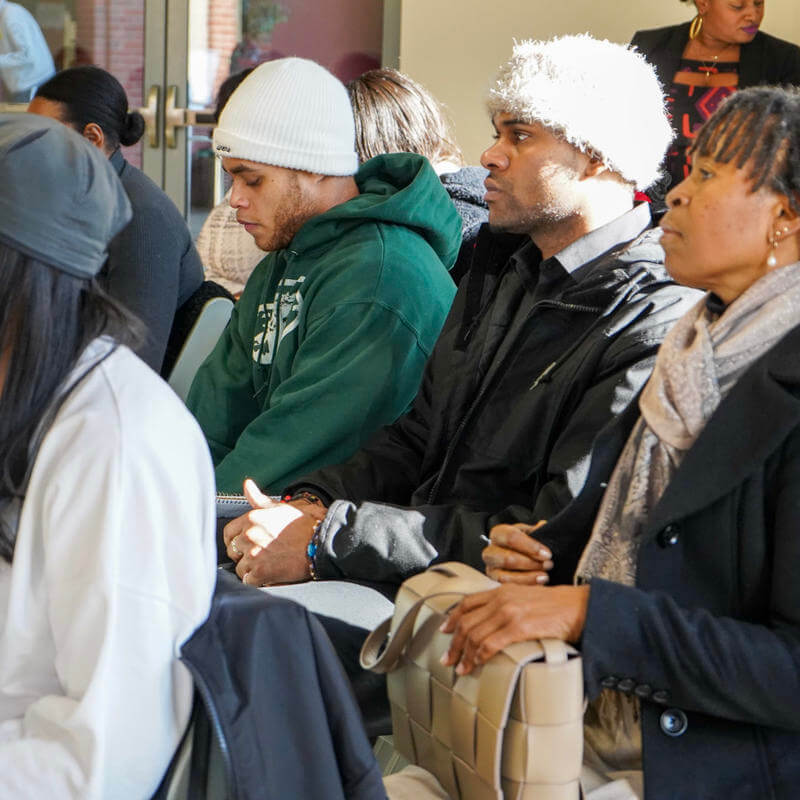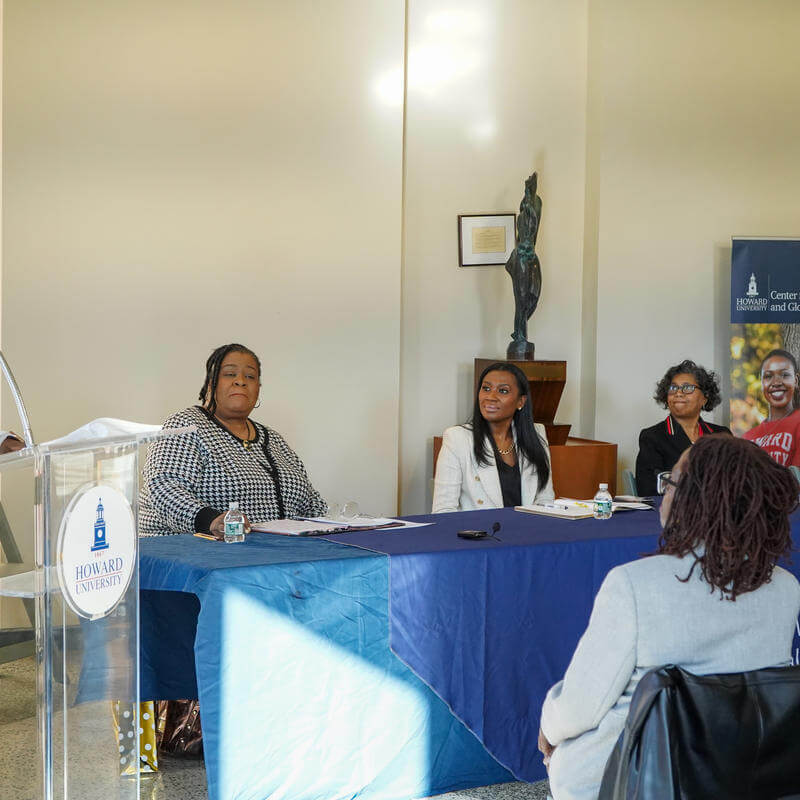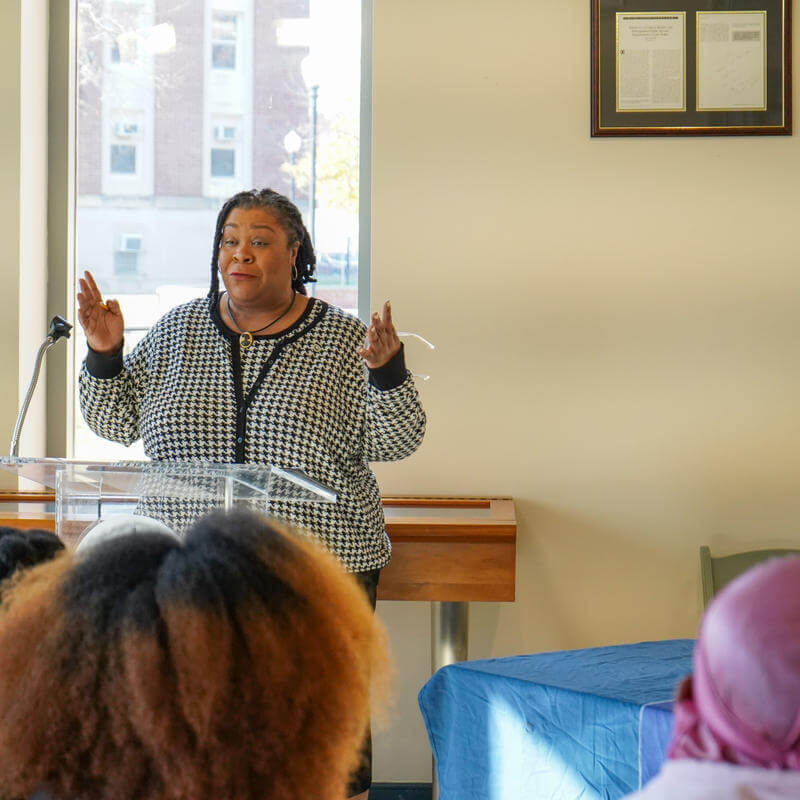Black Women in Leadership | A roundtable with HU Women Leaders
"This is a historic moment for our institution—
"This is a historic moment for our institution—cultivating women's leadership at Howard and placing women in key leadership positions has been a signature policy and institutional change under President Frederick's tenure," stated Dr. Plummer, acting director of the Women's Center. Howard University currently has 11 deans out of 14 that identify as Black women, and over 70% of the student body is female.
On Friday, January 27th, in partnership with the Center for HBCU Research, Leadership and Policy (HBCU Center), we hosted a roundtable discussion on Black Women Leaders at Howard, moderated by Associate Provost Dr. Melanie Carter and featured Dr. Tashni-Ann Dubroy, Dr. Sandra Crewe, and Dr. Oluwaranti Akiyode. The panelists engaged in a fascinating conversation about women's leadership at Howard, considering the historic appointments made at the decanal level.
Dr. Carter, who also directs the HBCU Center, began the panel discussion with a quote from a pioneer in education and advocate, Dr. McLeod Bethune -- "Sometimes I ask myself if I have any legacy to lead." She framed this quote to encourage leaders to lead a legacy of advocacy and change within their communities. There are struggles and challenges leaders must persevere to overcome and become examples for future leaders. However, they may need to see the tangible benefits of the gift they are creating.
Dr. Tashni-Ann Dubroy, the executive vice president and chief operations officer at HU, began her role at Howard after leaving a presidential position at Shaw University in Raleigh, NC. Though her background centers around chemistry and management, her transition has brought new leadership responsibilities, including human resources and services, information technology, facilities management, and enrollment management. She explains how her leadership is rooted in "thinking about the possibilities and never about the barriers," an idea instilled in her from childhood by her father.
As a leader, Dr. Dubroy states, "we have a responsibility as a university to find out our truth, even if it's ugly." She continues to leverage her leadership role at Howard to mentor other women and institute policies that help ensure a safe and productive environment for all members.
Dr. Sandra Crewe, professor and Dean of the School of Social Work, grew up in rural America and attended a segregated middle school where three black teachers impacted her perception of Black female leadership. She described the importance of "silent solidarity" as a leader because it requires honesty and humility to push forward Howard's mission of service to the students and community. And advocates that leaders must "not replicate mistakes, instead replicate the success" and lead with emotional intelligence. A unique barrier placed on women's leadership, she continues, is a push to follow the leadership styles of men, but it is crucial to avoid this because it can promote sexism and hierarchy. These structural barriers are not unique because they exist within society, regardless of your leadership level.
As the newest Dean of the only college of Pharmacy in D.C. and assistant Dean of Student Affairs, Dr. Oluwaranti Akiyode states that her leadership style enables her to mentor, advocate for and encourage her students to practice self-advocacy. She describes how earlier in her childhood and career, she wasn't confident in her leadership because of barriers placed on her, such as gender bias within promotion and pay. Her professional and personal support system helped her overcome her hesitancy in leadership. Mentorship and sharing her challenges and aspirations led to "having someone believe in you and see the things you can't see for yourself."
As the discussion concluded, each panelist advised future Black leaders at Howard University.
You must love it to lead it. You have to love what you are doing and who it's for.
Embrace leadership, whether you have people who disagree with you or not." A great leader leads with "Authenticity, empathy, and prioritizes rest." Rest is essential because knowing when to rest gives you the energy to get up the next day and compete with your yesterday's self.
-Dr. Dubroy
Leaders have to be inclusive of voices, and not make them hierarchical," which requires that you hear the stories of others and highlight that in your work instead of your account.
- Dr. Crewe
Influential leaders must "know their why" to create change in their position and community because this is the key motivator that will push them on days they feel stagnant.
- Dr. Akiyode


